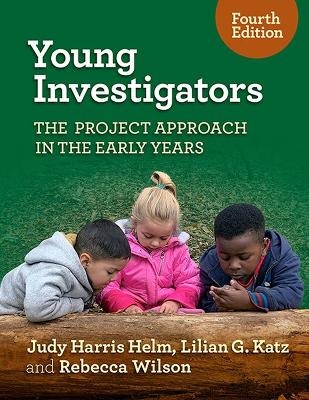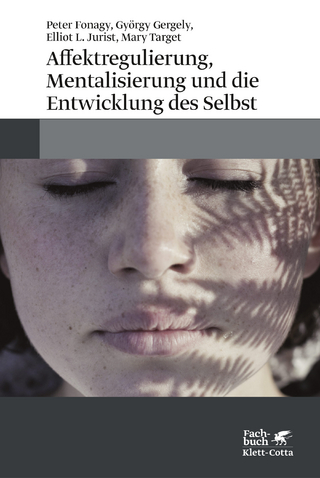
Young Investigators
Teachers' College Press (Verlag)
978-0-8077-6796-2 (ISBN)
Young Investigators has been expanded to guide today’s teachers through the process of conducting meaningful investigations with young children. This fourth edition of the bestseller begins with a new chapter, “How Children Really Learn,” which summarizes insights from mind-brain education research, showing how experiences firmly rooted in children’s curiosity and interest build intellectual capacity. The book then introduces the Project Approach with step-by-step guidance for incorporating child initiation and direction into curriculum while simultaneously addressing content standards. A new focus on critical Teacher Decision Points uses fresh-from-the-classroom examples to show how teachers think through project work. Also, for this edition, the emphasis on STEM experiences has been expanded to include STEAM.
This book makes project-based learning possible with younger children (toddlers through 2nd grade) who are not yet proficient in reading and writing, but capable of deep, focused thinking. Throughout, readers empathize with teachers’ concerns, witness how they find solutions to challenges, and feel the excitement of children during project work. Young Investigators is appropriate for teachers new to using the Project Approach, as well as for those who already have experience.
Book Features:
Examples of projects from child care centers and preschool, K–2, and special education classrooms.
Instructions for incorporating standards and STEAM skills into project work.
A variety of experiences to help children connect to the natural world.
Toddler projects that reflect knowledge from recent mind-brain research.
Tools for integrating required curriculum goals and for assessing achievement.
A Teacher Project Planning Journal that leads teachers through the major decision points of project work.
Full-color photographs of children engaged with projects.
A study guide for pre- and inservice teachers (available at www.tcpress.com).
Judy Harris Helm is the author of 10 books on project work, neuroscience applications, and early childhood programs. Lilian G. Katz is past president of the National Association for the Education of Young Children (NAEYC) and professor emerita at the University of Illinois, Urbana-Champaign. Rebecca Wilson has a specialization in bilingual education and teaches pre-K in the Van Meter Community School District, Iowa.
Contents
Preface xi
Acknowledgments xv
Introduction: How Children Really Learn 1
Potatoes, Potatoes, Potatoes 1
Learning Is in the Brain 2
Connected Learning 3
Synaptic Junctions 5
Brain Structures 6
Pruning 8
Respecting Child Thinking 9
Play as Mental Development 10
Pillars of the Mind 11
Using What We Know 14
1. Projects and Young Children 15
The Project Approach 16
Intellectual Competencies of the Early Years 22
More on Building Mind and Brain Capacity 23
Guiding Projects With Young Children 25
2. Getting Started 29
Issues in Selecting Topics for Projects 29
Anticipatory Teacher Planning 38
Building Common Experiences 44
Finding Out What Children Already Know 45
Developing Questions for Investigation 48
Setting Up the Classroom for Investigation 48
The Next Phase 51
3. Developing the Project 53
Beginning Phase II 53
Preparing for Investigation 56
Moving Into Investigation 62
4. Investigation 63
Field-Site Visits 63
Debriefing 70
Moving Into Phase III 80
5. Concluding the Project 81
Culminating the Project 81
The Power of Documentation 86
Types of Documentation 87
Using Materials and Equipment for Documentation 95
Distilling Documentation 96
Evaluating the Project 97
6. Preschoolers Engaged and Learning 99
The Camera Project 99
Learning as a Journey 112
7. Using the Project Approach With Toddlers 113
The Fire Hydrant Project 113
The Sign Project 122
Diverse Pathways to Rich Experiences 125
8. How Projects Can Connect Children With Nature 127
Thinking About Children’s Contact With Nature 127
Finding a Project Topic on Nature 128
Overcoming Teachers’ Fears of Science 130
Investigating Nature 131
Sharing Nature Projects to Educate Others 134
The Canada Goose Project 135
9. Project Investigations as STEAM Experiences 141
STEAM and the Project Approach 141
STEAM Disciplines 143
The Airplane Project 147
STEAM in the Airplane Project 150
10. Responding to Challenges Teachers Face in Project Work 153
“Yes, But” Thinking 153
Focusing on Teacher Decision Points 156
Final Thoughts From the Authors 172
References 175
Index 181
About the Authors 190
Project Planning Journal
| Erscheinungsdatum | 30.05.2023 |
|---|---|
| Reihe/Serie | Early Childhood Education Series |
| Verlagsort | New York |
| Sprache | englisch |
| Maße | 216 x 279 mm |
| Gewicht | 340 g |
| Themenwelt | Geisteswissenschaften ► Psychologie ► Entwicklungspsychologie |
| Sozialwissenschaften ► Pädagogik ► Vorschulpädagogik | |
| ISBN-10 | 0-8077-6796-4 / 0807767964 |
| ISBN-13 | 978-0-8077-6796-2 / 9780807767962 |
| Zustand | Neuware |
| Informationen gemäß Produktsicherheitsverordnung (GPSR) | |
| Haben Sie eine Frage zum Produkt? |
aus dem Bereich


